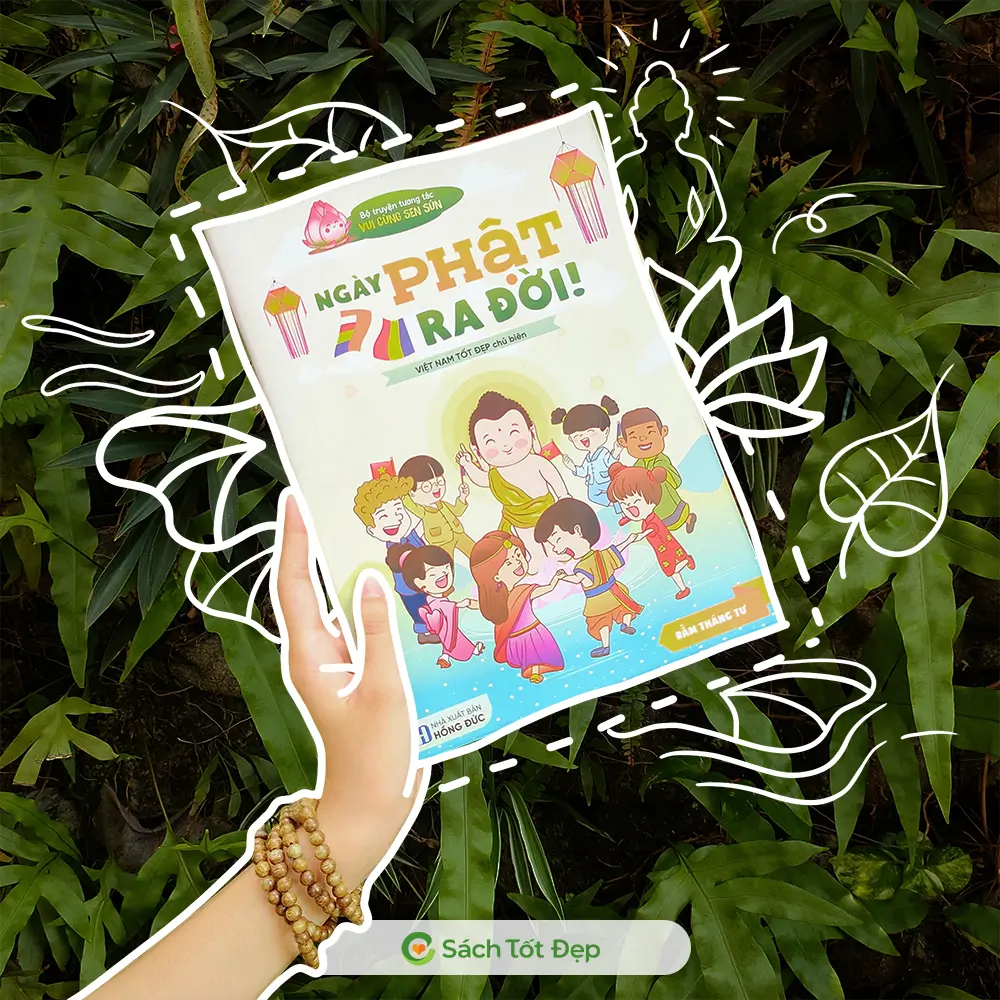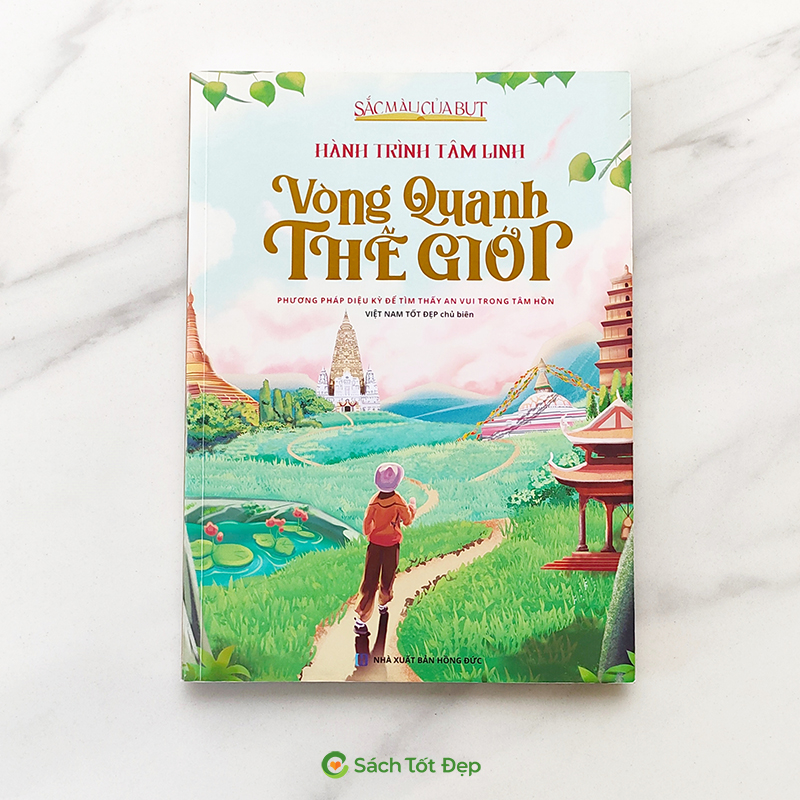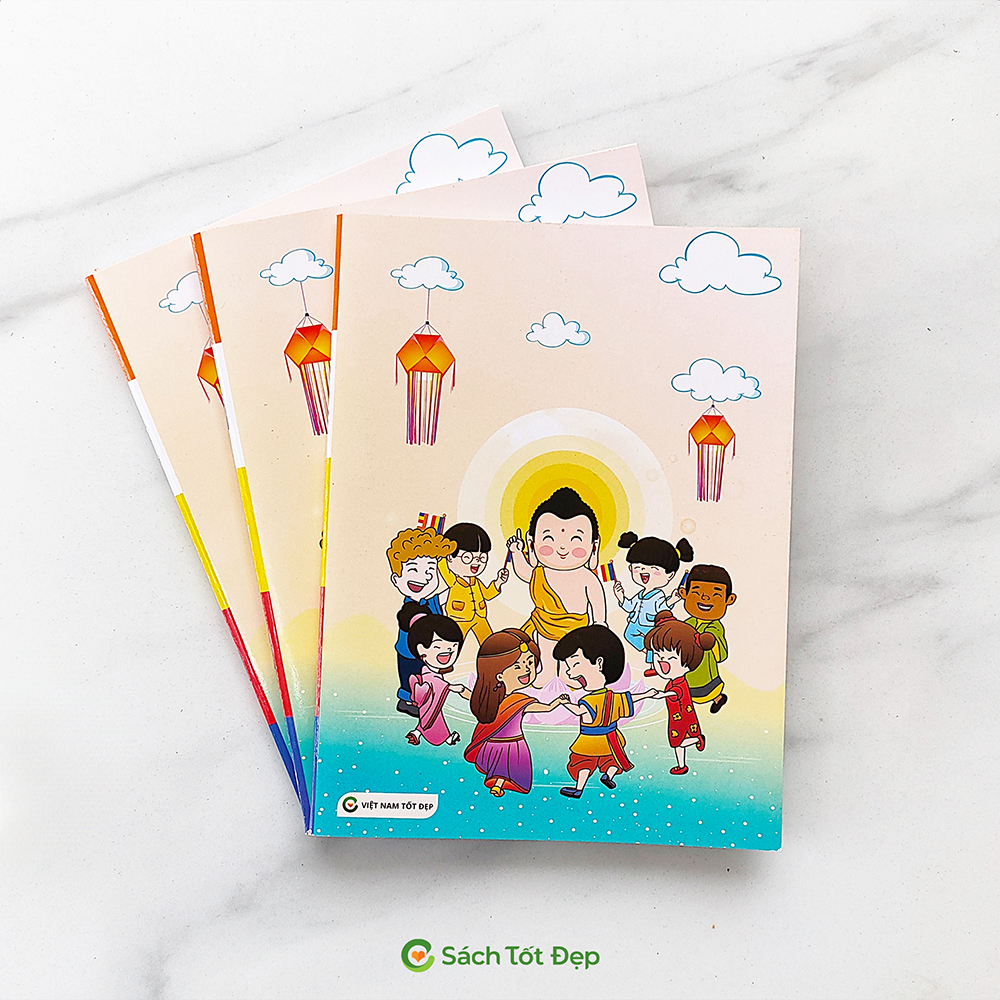Child Education from a Buddhist Viewpoint
INTRODUCTION
Buddhism is a path of personal experience and realization. Our Lord Buddha attained enlightenment with teachings on dependent origination and non-self. Throughout his time of preaching, these teachings were compiled by his disciples into the three baskets of Buddhist scriptures. We see specific methods of teaching based on the aptitude and level of individuals. From its early introduction, Buddhism has been integral to our nation’s founding and defense. As Mau Tu wrote in “”Li Hoac Luan”” in the late 2nd century AD, we had already established an independent state influenced by Buddhism. Thus, Buddhism naturally became a significant religion, impacting our nation. Buddhism not only educates on individual and family ethics but also serves as a political doctrine, helping the Vietnamese resist northern invaders, preserve national culture, and protect sovereignty and territory. Specifically, Buddhism advocates for educating future generations from infancy to adulthood, aiming to cultivate talents to protect the country. The writer selects the topic “”Child Education from a Buddhist Perspective”” to help readers understand Buddhism’s current societal engagement, starting with child education. The study uses analytical, comparative, and documentary methods for analysis and research.
A. CONTENT
1. The Concept of Education
Education is the process of transmitting knowledge, habits, customs, or skills from one generation to the next through teaching, research, and training. It can be self-experienced or self-learned, or guided by teachers and the surrounding environment. It develops and varies across different age groups, including infancy, preschool, elementary, middle, and high school, up to university.
2. Characteristics of Education
a. Education and Personality Development in Infants
From the moment a baby is conceived, parents’ loving and close relationship is crucial. Such behavior fosters a warm, happy home, nurturing the unborn child with love. Pregnant mothers often visit temples monthly to pray, chant, release animals, and perform charitable acts, hoping the child will grow up with virtues and religious faith. The child’s primary development involves sensory growth such as hearing, smelling, tasting, which indicates intellectual and spiritual development. Depending on parental care and interaction, the child’s character and lifestyle are shaped. Positive experiences create a solid foundation for future life. However, this development depends on the parents’ understanding and application of Buddhist teachings to real life, providing a positive role model for the child.
b. Education and Development of Children’s Character at Home
At this stage, children’s psychological and physical progress is evident as they begin to walk, play with their favorite toys, and start speaking. This phase is crucial for developing consciousness and character traits. Parents should use appropriate personal pronouns to teach children about family relationships, enhancing their understanding of communication. It’s essential for parents to serve as moral examples, avoiding conflicts in front of the children. On weekends, visiting temples with children can help them bond with peers and participate in activities like painting and understanding Buddhist teachings. This exposure helps children learn compassion and respect.
c. Education and Character Development in Nursery Age Children
This period is significant for the formation of personality and the development of indirect action motives. A child’s character is shaped by the behaviors and examples they encounter, with early experiences having a lasting impact. Parents should be attentive and engage children in play that combines learning and fun. Storytelling before bedtime, including fairy tales and moral stories, can be enriching. For Buddhist families, sharing tales of the Buddha’s previous lives can instill good habits and knowledge. Rewarding correct answers and positive reinforcement are effective. Participation in Buddhist festivals and activities helps in early spiritual development.
d. Education and Character Development in Elementary School Children
As children grow, they start school and are exposed to new knowledge and friends. This is a crucial time for parents to focus on their children’s education and character. Children’s cognitive abilities develop rapidly through various activities and emotions. Active children sometimes make mistakes, requiring careful guidance. Parents should educate children about respect and choose moral role models. Regular temple visits can enhance their understanding of Buddhist teachings and morals.
[Verse]
“”We triumph over evil,
Conquer the entire world,
With wisdom so bright and profound,
Dispelling darkness, embracing the path.””
[Teaching and Nurturing Children]
In addition to academic education, it’s important to teach children the value of generosity and altruism. For instance, the story of a Ph.D. graduate who overcame blood cancer can be inspiring. This person, now a professor and a renowned food scientist in the U.S., experienced severe illness during his high school years. Despite the challenges, he developed a compassionate heart and began to study Buddhism and adopted its precepts in university. His dedication and perseverance are examples that can inspire children to trust in goodness and resilience.
Encouraging children to love and respect their friends and their own well-being is crucial. Activities like participating in clubs for dancing, acting, and storytelling can help them showcase their talents. It’s important to foster a sense of responsibility in youth, so they can lead future generations. Engaging in community service, like planting trees and cleaning temples, contributes to their moral development and creates a peaceful life.
e. Education and Character Development in High School Students
At this stage, adolescents undergo significant psychological and physiological changes, making it complex to shape their character and gender identity. This period is marked by a desire for independence and self-assertion, often leading to disagreements with peers and a reluctance to heed parental advice. Teenagers start to care about their appearance and want to spend more time with friends. Parents need to be closely involved, understanding their children’s needs, especially during puberty. It’s crucial to teach them about gender relations and appropriate behavior in mixed-gender interactions.
The parents, particularly those following Buddhist teachings, should guide their children to respect elders and embrace Buddhist values like gratitude, contentment, and self-belief. This includes participating in Buddhist rituals and practices, which can help in developing a well-rounded personality aligned with the family and societal values. The goal is to instill self-confidence and the ability to make positive contributions to society.
3. Current State of Education
In Vietnam, education is a vital element in national development. The government prioritizes education as a key policy for progress. However, there are challenges, such as uneven quality across regions, excessive academic pressure in urban centers, and a lack of practical application in the curriculum. There’s a need for a more balanced and integrated approach across educational levels, focusing not just on academic knowledge but also on moral and ethical teaching. The learning process should enhance memory, critical thinking, and creativity, preparing students for practical life challenges. Improving education involves aligning it with technological advancements and societal needs, ensuring that children are well-equipped for future success.
Regarding the distribution of educational management staff and teachers, there are concerns about uneven allocation and issues with some teachers lacking dedication and a competitive spirit in teaching.
The direction for the future and the integration of education with international standards is not yet robust. Often, our education system is influenced more by external goals than our initial intentions. This situation indicates a slow adaptation to the technological era. The experience suggests that we must start applying innovative approaches from early childhood, allowing children to develop thinking and creativity for educational success. A thriving economy, politics, and society depend on correctly setting practical and forward-looking educational directions.
4. Proposed Solutions
In today’s environment, alongside community programs focusing on nurturing knowledge, Buddhism emphasizes “”nurturing the hearts of the young”” to deepen their understanding of Buddhist teachings. The aim is to achieve both spiritual and material success. Young monks and nuns actively participate in guiding children to live by Buddhist ethical standards, exemplified by the verse:
“”Young monks, though small in age,
Diligently study Buddha’s teachings,
Illuminating the world,
Like the moon breaking through clouds.””
This verse from the Dhammapada is used as a teaching module for children to practice, alongside volunteer programs inspired by Ho Chi Minh’s motto:
“”Children do small deeds,
As per their own capacity.””
Various activities are organized for children to engage with Buddhist perspectives, like family Buddhist activities, exciting Buddhist quiz games, and participation in cultural performances during Buddhist festivals. These activities spark interest and encourage children to showcase their talents. On occasions like “”International Children’s Day,”” the theme “”Children towards Buddhist Teachings”” is promoted for deeper understanding and happiness in following Buddha’s path. Additionally, initiatives are taken to reach out to children in remote areas with gifts and charity work, providing them with materials needed for education. Weekend classes are also organized for children needing extra help or those who cannot afford tutoring due to financial difficulties. This ensures they don’t face academic pressure and can balance school with temple activities. As Thich Tri Quang noted, “”Humanity has recently realized the importance of youth, but Buddha had long ago focused on educating young people.”” We, as inheritors of the Dharma, must practice and spread these teachings to broaden and enhance the educational foundation, especially for the young generation. A strong educational foundation in all aspects – knowledge, ethics, economy, politics, and society – from an early age ensures a bright future for the country and Buddhism.
B. Conclusion
Our lives are evolving in an era of prosperity and abundance. Our living standards are improving, and attention to children’s welfare is increasing. The state and the party implement policies for children’s creativity and community organizations prioritize educational activities. In Buddhism, there is a focus on teaching and practicing the Dharma in developing the character of lay Buddhists. This is the key to the sustainable development and continuous inheritance of Vietnamese Buddhism. Therefore, the responsibility of each member of the “”Vietnam Buddhist Sangha”” in teaching and spreading the Dharma to children, directly or indirectly, is crucial. We must elevate the “”spirit of Buddhism through the foundation of child education”” to strengthen it further.
(Source: Buddhist Studies Journal)
Sản phẩm bạn có thể quan tâm

Let’s play with Sen Sun: Buddha’s birthday
Coloring book
28.000đ

The Colors of Buddha: A Spiritual Journey Around the World
Coloring book
135.000đ

Tot Dep Notebook 96-pages
8.000đ

Wisdom Combo: 5 books + 3 special gifts
Coloring book
280.000đ





